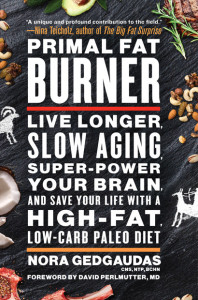10) Relying on superficial descriptions such as “natural” or even “organic” on labels to determine whether a food is truly healthy.
9) Relying on the media, your doctor or even conventional nutritionists/dieticians to provide accurate nutritional information
–And there is considerable reason to be cautious. Medical doctors—although often well-meaning– may be the singularly least qualified persons to offer nutritional recommendations. Their education in nutrition is almost non-existent and carefully cultivated by medical schools entirely toward promotion of pharmaceutical interests. Keep in mind that somewhere around World War II medicine ceased to become a profession and became a full-blown industry. One really does not go to medical school to study health; but rather, one goes to medical school to study disease…and the treatment of the symptoms of disease by the use of drugs, surgery and (often expensive) medical intervention. Medical schools are essentially funded by pharmaceutical interests. –Not that doctors are ill-intentioned in the least, but hospitals are profit-oriented institutions…and the advice you get there may not be in your own best interest so much as the interest of the hospital or clinic (this observation was actually imparted to me in confidence by the head of a department at a major medical university). The same may unfortunately be said for many “natural health care providers” that are often as beholding to the interests of neutraceutical companies as allopathic physicians are beholding to drug companies. I do not suggest people ignore the advice of their healthcare providers, only that people be cautious, do their homework and/or seek second (if not multiple) opinions wherever possible. No one will ever care more about your health and your own best interests than you. Conventional nutritionists and dieticians (the very people that design hospital food and school lunch programs…take a hint) are bound to the dictates of the unfounded and enormously unscientific USDA Food Pyramid. However well-meaning, these folks have been “indoctrinated” and fully trained by a complex, very corporate-driven system determined to retain considerable political and economic power. 8) Believing that junk food “in moderation” is OK.
For instance, the only genuinely safe amount of trans-fats in anyone’s diet is ZERO. A single serving of trans-fat in French fries or chips may take up to two years for one’s body to fully eliminate, and its biological effects on your system in the meantime are chaotic and anyone’s guess as to how deleterious they are likely to be. Is “occasional” Russian roulette an “OK” thing? MSG is an excitotoxin and always does some degree of neurological damage. Is neurological damage “in moderation” OK? Furthermore, sugar consumption in any quantity is damaging and dysregulating to the system. Some of the effects are reversible and some not. Ultimately, it is the cumulative effect associated with glycation and insulin production that determine our health and life span. We live in a world where we can ill-afford any compromise to our health or well-being. Every meal matters. Is “a little hormonal chaos” or “just a tad” of systemic damage acceptable? In the end, it’s all a matter of what you prioritize. If health really matters to you, then the less you compromise it, the better. If superficial indulgence matters more…then I doubt you would be reading this. It’s a choice we make. We need to make our choices more consciously and thoughtfully–and less impulsively. Furthermore, the less you compromise your health, the easier it becomes not to compromise (you just don’t get tempted after a while) AND the least likely you are to backslide and fall back into less healthy patterns of eating. –Like the Nike ad says: “Just Do It”. Stick to your guns. Maintain your “health integrity”. The ongoing and positively cumulative payoff will well exceed any superficial compromise to your impulsive desires. Your quality of life will not suffer in the absence of French fries, candy, potato chips, dessert or doughnuts. If you think it will, then you may need to take a look at what may be either addictions or a lack of healthy priorities. 7) Following “government guidelines” or “The Food Pyramid” for healthy eating.
6) Thinking that “being slim” means you are healthy—using weight as your litmus of “good health”.
5) Using vitamins to “make up for” unhealthy eating habits.
4) Believing that exercise can “make up for” unhealthy eating habits.
3) The belief that “genetics is destiny”. Don’t get me started.
2) The belief that eating healthy means having to give up enjoyment of food, good flavor, fat, dietary cholesterol or animal source foods.
Animal source foods are only as healthy as their sources, and no one should be eating hormone- and antibiotic-laden, feedlot-fattened, or unethically-treated meat sources. The alternative is not vegetarianism/veganism…the alternative is finding healthy, ethically- or naturally raised sources of these animal source foods that we have consumed and have been physiologically adapted to eating as hominids for the last 2.6 million years. Ethical livestock farmers are out there…and we should all be giving them and NOT the commercial livestock industry our business. Plant foods are wonderful, too, and a source of many antioxidants and phytonutrients needed by us more today than ever before. They are far from the entire picture for health, however. 1) The belief or assumption that eating a quality diet is too expensive…or too difficult or complicated to maintain.
|
Nora Gedgaudas


 Here’s where the Food Industry gets you. They hone in on buzzwords they think will sell their product. Terms like “natural” or “organic” are useless if the product in question is loaded with sugar (organic or not) or if the product contains highly processed ingredients and /or additives. Furthermore, labeling laws designed to supposedly “protect the consumer” are dubious, at best. Learn to read the fine print in the actual nutritional analysis on the back and come to understand the ingredient lists. A good rule of thumb where packaged food is concerned is to follow the edicts of ‘The X-Files’ and “Trust No One”. If it wouldn’t look like food to someone wandering around 40,000 years ago with a loincloth and a spear, it probably isn’t food for you, either!
Here’s where the Food Industry gets you. They hone in on buzzwords they think will sell their product. Terms like “natural” or “organic” are useless if the product in question is loaded with sugar (organic or not) or if the product contains highly processed ingredients and /or additives. Furthermore, labeling laws designed to supposedly “protect the consumer” are dubious, at best. Learn to read the fine print in the actual nutritional analysis on the back and come to understand the ingredient lists. A good rule of thumb where packaged food is concerned is to follow the edicts of ‘The X-Files’ and “Trust No One”. If it wouldn’t look like food to someone wandering around 40,000 years ago with a loincloth and a spear, it probably isn’t food for you, either! Keep in mind that most “mainstream” information sources have an inherent agenda (hidden or not so hidden in them). Anyone providing “education” regarding what it is you need to be healthy who comes from a mainstream perspective will either directly or indirectly be furthering the financial interests of various multinational corporations, mainstream medicine and/or pharmaceutical companies. This is not paranoia or cynicism…it is reality.
Keep in mind that most “mainstream” information sources have an inherent agenda (hidden or not so hidden in them). Anyone providing “education” regarding what it is you need to be healthy who comes from a mainstream perspective will either directly or indirectly be furthering the financial interests of various multinational corporations, mainstream medicine and/or pharmaceutical companies. This is not paranoia or cynicism…it is reality. This is a biggie. People will rationalize ‘til Sunday why it’s OK for them to eat French fries or potato chips “once in a while” or have their daily beer. While it’s true that it really isn’t what you do “once in a while” that usually determines your ultimate health or success in life (of course, the definition of “once in a while” is another interesting thing to consider) but what you do consistently that matters most…this does have its exceptions.
This is a biggie. People will rationalize ‘til Sunday why it’s OK for them to eat French fries or potato chips “once in a while” or have their daily beer. While it’s true that it really isn’t what you do “once in a while” that usually determines your ultimate health or success in life (of course, the definition of “once in a while” is another interesting thing to consider) but what you do consistently that matters most…this does have its exceptions. Anyone who wants to see for themselves what “government guidelines” and The Food Pyramid can do for their health only needs to drive to the nearest Native American Reservation and look around. The government supplies these reservations with much of their food, based on these guidelines. Take a look at the tragically pervasive rate of obesity, diabetes, heart disease, alcoholism and any other degenerative illness you can think of. Look at life expectancy. Consider also what now constitutes “food” in government guideline-designed school lunch programs. After all…everyone knows that “ketchup is a vegetable”…
Anyone who wants to see for themselves what “government guidelines” and The Food Pyramid can do for their health only needs to drive to the nearest Native American Reservation and look around. The government supplies these reservations with much of their food, based on these guidelines. Take a look at the tragically pervasive rate of obesity, diabetes, heart disease, alcoholism and any other degenerative illness you can think of. Look at life expectancy. Consider also what now constitutes “food” in government guideline-designed school lunch programs. After all…everyone knows that “ketchup is a vegetable”… Although it’s always better not to be overweight, looking good on the outside in no way means everything is working right on the inside. It is entirely possible to be slim…AND diabetic. It is entirely possible to be slim and suffer a heart attack or stroke. It is entirely possible to be slim and get cancer…or just about any other disease. Superficial image isn’t everything. –It’s not even close. This is a major…and often disastrous cultural illusion. Diet programs designed to help you lose weight are typically focused on “low calories” to the exclusion of quality health or nutrition. They typically supply their desperate victims with empty processed foods and coddle them with empty “low-cal” and “low fat” carbohydrates and sugary treats to seduce them into their programs (“look—I can EVEN eat chocolate cake and STILL lose weight!”). Those that market these programs, often supported and or designed by registered dieticians, should be ashamed of themselves.
Although it’s always better not to be overweight, looking good on the outside in no way means everything is working right on the inside. It is entirely possible to be slim…AND diabetic. It is entirely possible to be slim and suffer a heart attack or stroke. It is entirely possible to be slim and get cancer…or just about any other disease. Superficial image isn’t everything. –It’s not even close. This is a major…and often disastrous cultural illusion. Diet programs designed to help you lose weight are typically focused on “low calories” to the exclusion of quality health or nutrition. They typically supply their desperate victims with empty processed foods and coddle them with empty “low-cal” and “low fat” carbohydrates and sugary treats to seduce them into their programs (“look—I can EVEN eat chocolate cake and STILL lose weight!”). Those that market these programs, often supported and or designed by registered dieticians, should be ashamed of themselves. Keep in mind that vitamin companies are profit-oriented institutions, also. Many would like you to believe that you can make up for eating crap by just taking your daily “One A Day”. There is no such thing. “Supplements” are just that: —Supplements. They can be an incredibly useful adjunct to an already healthy diet…but never E-V-E-R a substitute.
Keep in mind that vitamin companies are profit-oriented institutions, also. Many would like you to believe that you can make up for eating crap by just taking your daily “One A Day”. There is no such thing. “Supplements” are just that: —Supplements. They can be an incredibly useful adjunct to an already healthy diet…but never E-V-E-R a substitute.
 Even by the most conservative geneticists’ standards, we have anywhere from 80% to 97% control over our own genetic expressions. We ALL have dormant genes for all sorts of things, both good and bad. You’re not just fat because your mother and father were fat. –Nor are you destined to have a heart attack just because half the people in your family have had one, or by the same token will you get diabetes, or cancer. Genetics can have some influence, certainly…but genes are turned on and off by regulatory genes and regulatory genes are mainly controlled by nutrients. A gene will not express itself unless the internal environment is conducive to its expression… and we have ultimate control over that by the foods we choose to eat, the emotions we habitually choose to experience, the toxicity of the environment in which we live and the lifestyle we consistently choose to live. Learn to be the master of your own genetic destiny.
Even by the most conservative geneticists’ standards, we have anywhere from 80% to 97% control over our own genetic expressions. We ALL have dormant genes for all sorts of things, both good and bad. You’re not just fat because your mother and father were fat. –Nor are you destined to have a heart attack just because half the people in your family have had one, or by the same token will you get diabetes, or cancer. Genetics can have some influence, certainly…but genes are turned on and off by regulatory genes and regulatory genes are mainly controlled by nutrients. A gene will not express itself unless the internal environment is conducive to its expression… and we have ultimate control over that by the foods we choose to eat, the emotions we habitually choose to experience, the toxicity of the environment in which we live and the lifestyle we consistently choose to live. Learn to be the master of your own genetic destiny. All of us, regardless of our ideologies, ethnic backgrounds or anything else are genetically “hunter gatherers” and 99.99% identical to humans living 40,000 to 100,000 years ago. We are, in effect, creatures of the Ice Age and designed to consume a diet rich in animal source foods and natural fats, together with a variety of fibrous plant matter. Vegetarianism and veganism are modern day ideas founded more in ideological principles than principles of human physiology and anthropological evidence.
All of us, regardless of our ideologies, ethnic backgrounds or anything else are genetically “hunter gatherers” and 99.99% identical to humans living 40,000 to 100,000 years ago. We are, in effect, creatures of the Ice Age and designed to consume a diet rich in animal source foods and natural fats, together with a variety of fibrous plant matter. Vegetarianism and veganism are modern day ideas founded more in ideological principles than principles of human physiology and anthropological evidence. Nothing could be further from the truth. The dietary guidelines suggested in my book: “Primal Body—Primal Mind” can not only save you hundreds of dollars in grocery bills (while still being able to afford very high quality meat, fish, eggs and produce), but one also must take into account money to be saved in avoiding medical bills or loss of work income through illness. We’re talking pennies on the dollar here. By approaching diet from an educated, principle-based (and not “formulaic”) perspective one automatically understands what is needed and also knows better how to navigate the landmines of mis- and dis-information set by corporate economic and/or political interests. It’s all way easier and far cheaper than you think!!
Nothing could be further from the truth. The dietary guidelines suggested in my book: “Primal Body—Primal Mind” can not only save you hundreds of dollars in grocery bills (while still being able to afford very high quality meat, fish, eggs and produce), but one also must take into account money to be saved in avoiding medical bills or loss of work income through illness. We’re talking pennies on the dollar here. By approaching diet from an educated, principle-based (and not “formulaic”) perspective one automatically understands what is needed and also knows better how to navigate the landmines of mis- and dis-information set by corporate economic and/or political interests. It’s all way easier and far cheaper than you think!!

